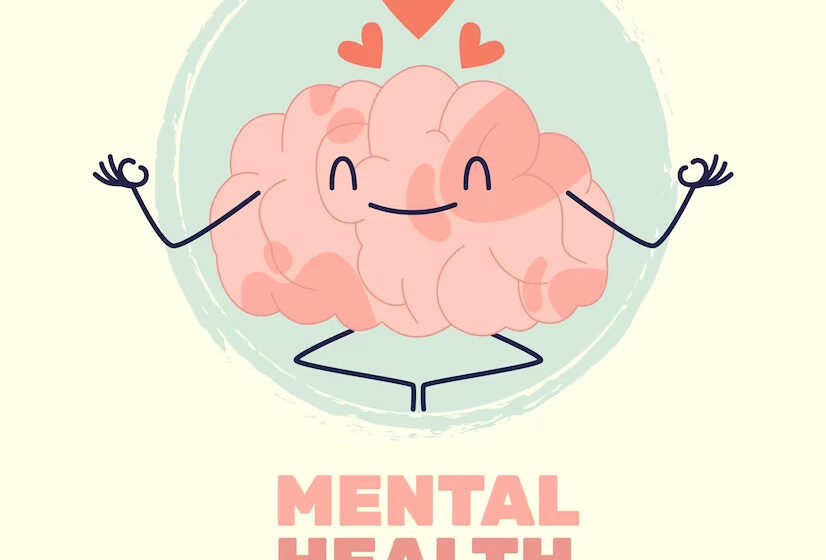Mental Health Awareness: A Path to a Healthier You

Mental Health Awareness: A Path to a Healthier You
Mental Health Awareness refers to the recognition, understanding, and promotion of Mindfulness Awareness and well-being. It involves efforts to increase public and individual awareness of mental health issues, reduce stigma around mental illnesses, and encourage open conversations about mental health. Mental Health Awareness campaigns aim to educate people about the importance of Mental stability , the signs and symptoms of mental illnesses, and the available resources and support for those who may be struggling.
Is mental health awareness a good thing?
Yes, mental health awareness is incredibly important and undeniably a positive thing. It helps to break down stigmas surrounding mental health, encouraging open conversations about mental well-being. By increasing understanding and empathy, Mindfulness Awareness empowers individuals to seek help when needed and supports those living with Mental stability conditions. It also leads to better access to resources and treatment options, ultimately improving the overall well-being and quality of life for countless individuals.
Why Is Mental Health Awareness Important?
Being aware of Mental Health Awareness prompts individuals to seek support, and finding a “Therapist near me” can be a crucial step in dealing with mental health challenges.
- Reducing Stigma: Mental Wellness Promotion campaigns help reduce the stigma and discrimination associated with mental health conditions. Stigma can prevent individuals from seeking help and lead to social isolation and discrimination.
- Early Intervention: Increased awareness can lead to earlier recognition of mental health issues. Early intervention and treatment are often more effective in managing mental illnesses and preventing them from worsening.
- Promoting Help-Seeking Behavior: People who are aware of mental health issues are more likely to seek help when they or someone they know is struggling. Encouraging help-seeking behavior can save lives and improve outcomes.
- Supporting Those Affected: Mental Health Education fosters a supportive environment for individuals living with mental health conditions. It helps them feel understood, validated, and less isolated in their experiences.
- Improving Quality of Life: Effective mental health treatment and support can significantly improve an individual’s quality of life. Awareness initiatives contribute to better access to care and resources.
- Preventing Suicide: Many mental health conditions are associated with a higher risk of suicide. Well-Being Awareness efforts can educate the public about the signs of suicidal behavior and how to provide help and support.
- Enhancing Workplace Well-Being: Mental Health Acceptance in the workplace can lead to better employee well-being, increased productivity, and reduced absenteeism. Employers are more likely to implement mental health support programs when they understand the importance of mental health.
- Empowering Individuals: Knowledge about mental health empowers individuals to take charge of their own well-being. It encourages self-care, stress management, and resilience-building practices.
Recognizing the importance of Mindfulness Awareness , finding a “Psychologist near me” can be instrumental in effectively handling mental health concerns.
10 Ways to Raise Mental Health Awareness
Raising mental health awareness is a vital effort that can help reduce stigma, promote understanding, and encourage individuals to seek help when needed. Here are ten ways to raise Emotional Health Awareness:
- Education and Information: Provide accurate and accessible information about mental health through workshops, seminars, webinars, and educational materials. Focus on dispelling myths and providing facts about mental health conditions.
- Social Media Campaigns: Use social media platforms to share mental health-related content, stories, and resources. Create engaging campaigns with hashtags to reach a wider audience and encourage discussions.
- Community Events: Organize community events like Psychological health fairs, panel discussions, or art exhibitions to promote awareness and provide information on local Emotional Health Awareness resources.
- Storytelling: Encourage individuals with lived experiences to share their stories and journeys with mental health. Personal stories can be powerful tools for breaking down stigma and fostering empathy.
- School Programs: Introduce Emotional Health education in schools and colleges to raise awareness among young people. Teach them about mental health, coping strategies, and how to seek help.
- Support Groups: Establish or promote support groups for individuals living with mental health conditions and their families. These groups provide a safe space for sharing experiences and support.
- Training and Workshops: Offer mental health training and workshops for healthcare professionals, educators, and employers to equip them with the skills to recognize and support those struggling with mental health issues.
- Advocacy: Engage in advocacy efforts to promote mental health policies and resources. Support organizations and campaigns working to improve mental healthcare access and funding.
- Mental Health Days: Encourage workplaces and schools to observe Emotional Health days or weeks with activities that promote well-being, self-care, and Mindfulness Awareness .
- Collaboration: Collaborate with local mental health organizations, nonprofits, and community leaders to pool resources and efforts to raise awareness collectively.
conclusion
Remember that raising Emotional Balance Awareness is an ongoing process. It requires persistence, empathy, and a commitment to reducing stigma and fostering a more supportive and understanding society.

